You have no items in your shopping cart.
The Beginner’s Guide to the Occult; Understanding the History, Key Concepts, and Practices of the Supernatural

Deborah Lipp, Rockridge Press
Deborah Lipp has done something remarkable in its scope and surprising in its simplicity. Modern Witchcraft and Paganism stand on the shoulders of thousands of years of occultism. Many ancient systems are woven into 20th and 21st century rituals, but it can be extremely challenging for most practitioners to identify—much less fully engage with—most of these older threads within their own practices. That is the gap The Beginner’s Guide to the Occult fills.
There are wonderful and thorough introductions to Kabbalah. Books on Tarot abound. However, each system is part of a broader occult milieu that has cross-pollinated for centuries, and there are few resources that support understanding the multiplicity of connections between them. For example, it is quite difficult if not impossible to understand Ceremonial Magic without some knowledge of Astrology and Kabbalah. Likewise, without Numerology, Kabbalah and Alchemy the Tarot are still functional for fortune telling, but do not act as keys to unlock the mysteries—as they can do when understood in the context of other occult systems. The Beginner’s Guide to the Occult is a compass that orients you, the modern practitioner, so you can find your way in this strange world.
You don’t need to desire to be an occultist to benefit, though. Lipp goes further and helps the reader appreciate why these older systems persist to the modern day. When so much has been lost to history and obscurity, the squared circle remains. “Abracadabra” is still on the lips of children, and “as above, so below” is still called out in coven and whispered at the solitary altar. Lipp helps you begin to understand why.
The book is divided into chapters on Folk Magic, Witchcraft, Astrology, Numerology, Alchemy, Kabbalah, Ceremonial Magic and Tarot. Do not be deceived into thinking the breadth of the subject matter indicates a simplistic treatment. Lipp knows her topic and adeptly weaves the chapters together to build the reader’s understanding of just how interconnected they are without artificially syncretizing them. Moreover, this is not an instructional text for any of the systems described and does not attempt to be one. The reader will walk away not as a master of astrology, alchemy or Kabbalah, but as a person with a basic orientation to each system and appreciation of its influence both on the others and on current Pagan and Wiccan practice.
The Beginner’s Guide to the Occult is for anyone looking for more depth in their existing practices, for coven leaders wanting to orient their students to broader the occult, and for occult seekers beginning to equip themselves for the journey.

